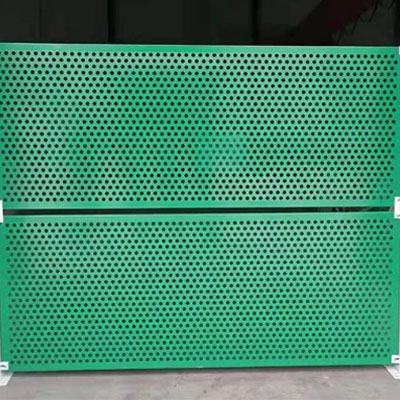The Importance of Noise Barriers in Highways
Highway noise is an unavoidable consequence of modern transportation systems. As vehicle traffic increases, so does the noise pollution that affects nearby communities. This persistent noise can lead to various health issues, decreased quality of life, and environmental concerns. To mitigate these effects, noise barriers have become essential structures alongside highways, serving as a crucial element in urban planning and road construction.
Understanding Noise Barriers
Noise barriers, also known as sound walls or noise walls, are constructed from various materials, including concrete, metal, wood, and earth. Their primary purpose is to reduce the transmission of sound from highways to adjacent areas. By obstructing sound waves, these barriers can significantly lower noise levels in residential neighborhoods, schools, and parks situated near busy roads.
The effectiveness of a noise barrier largely depends on its height, length, and the materials used. Ideally, the barrier should be tall enough to block the line of sight to the highway, which often correlates with reduced sound exposure. Barriers can vary in thickness and density; while thicker, denser materials tend to absorb sound better, their design must balance effectiveness with aesthetic considerations and cost.
The Benefits of Noise Barriers
1. Health Improvements Prolonged exposure to high levels of noise can lead to serious health issues, including stress, sleep disturbances, hearing loss, and cardiovascular problems. By reducing noise levels, barriers contribute to improved overall well-being for residents living near highways.
2. Enhanced Quality of Life The presence of noise barriers can significantly enhance residents' quality of life. Quieter environments foster a sense of peace and tranquility, which is particularly important in urban settings where noise pollution is often rampant.
3. Increased Property Values Communities close to busy highways can experience a decrease in property values due to noise pollution. The installation of effective noise barriers can help maintain or even increase property values, as they create a more pleasant living environment.
noise barrier in highway

4. Environmental Benefits In addition to minimizing human exposure to noise, barriers can also protect wildlife habitats by creating a buffer against the disruptive effects of road noise. Many species, particularly birds, are sensitive to sound and can be adversely impacted by highway noise, affecting their mating and feeding behaviors.
Design and Aesthetic Considerations
While the primary function of noise barriers is to reduce sound, their design and aesthetics should not be overlooked. Highways are often seen as eyesores in their surroundings, and poorly designed barriers can exacerbate this issue. Innovative designs that incorporate greenery, artistic elements, or other visual enhancements can help to better integrate these structures into the landscape.
Vertical gardens, for example, have emerged as a creative solution, providing both acoustic benefits and environmental advantages. These living walls not only absorb sound but also improve air quality and support biodiversity, making them an appealing alternative to traditional barriers.
Challenges in Implementation
Although the benefits of noise barriers are clear, there are challenges in their implementation. Cost considerations often play a significant role in the decision-making process for highway projects. Additionally, local regulations and community opposition can also hinder the installation of these structures. Some community members fear that noise barriers may create a “wall” effect, visually separating neighborhoods and diminishing community cohesion.
Conclusion
Noise barriers play a critical role in managing highway noise pollution and protecting the quality of life for residents living near these busy thoroughfares. By effectively blocking sound, these structures promote health, enhance property values, and provide environmental benefits. As urban areas continue to grow and the demand for transportation increases, integrating noise barriers into highway planning will become even more crucial. Furthermore, with an emphasis on thoughtful design and community engagement, noise barriers can be both functional and aesthetically pleasing, creating a harmonious balance between transportation needs and residential well-being. As we move forward, it is essential to prioritize sound mitigation strategies that cater to the needs of communities while promoting sustainable transportation solutions.
-
Why Galvanized Trench Cover Steel Grating Resists Corrosion
NewsJul.10,2025
-
The Versatility and Strength of Stainless Expanded Metal Mesh
NewsJul.10,2025
-
Load Calculations in Steel Grating Platforms
NewsJul.10,2025
-
Keeping Pets and Kids Safe with Chicken Wire Deck Railing
NewsJul.10,2025
-
Hole Diameter and Pitch for Round Perforated Metal Sheets
NewsJul.10,2025
-
Aluminium Diamond Mesh in Modern Architecture
NewsJul.10,2025
Subscribe now!
Stay up to date with the latest on Fry Steeland industry news.

